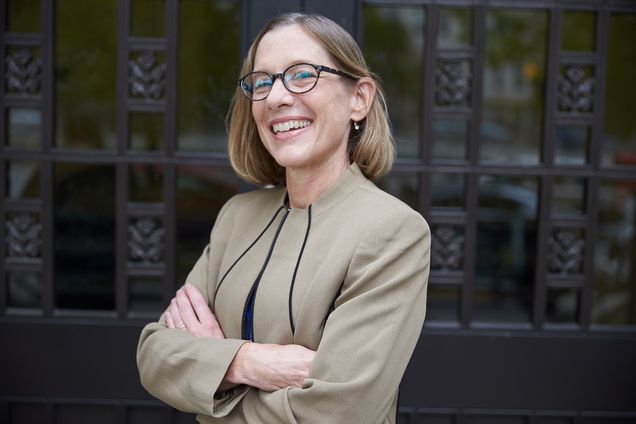From the Dean
Ann E. Cudd, Dean of Arts & Sciences
Ann E. Cudd, Dean of Arts & Sciences
I am often asked: why major in the liberal arts and sciences? What can a major in classics or sociology or Earth and environmental sciences do for me (or, as I am asked even more commonly, for my child)? This is a fair question that demands a great answer from me. My answer always involves three main points: an arts and sciences degree will help you live a vibrant inner life, develop the ability to respond to and benefit from changing economic conditions, and be an informed citizen of our democracy.

In the College of Arts & Sciences at Boston University, we not only proffer theoretical arguments for a broad-based education in the fundamental disciplines of knowledge production, but also demonstrate the value of the arts and sciences daily through the words and deeds of our faculty, students, and alumni. This issue of arts&sciences displays examples of the ways in which the study of the arts and the sciences can enhance one’s life, create better communities, and solve the grand challenges we face as a society and a species.
In our lead story, Professor Zsuzsanna Varhelyi shows how study of the classics can provide wisdom for leading a good life. Taking on the role of an advice columnist, she answers questions about topics like finding love and dealing with death by considering the writings of ancient and modern philosophers. From the Stoics, we get the idea of restraining our desires to things that are within our reach and our concerns to what we can control; from Aristotle, the idea that pursuing virtue is the road to a flourishing life. Through her interpretations of these philosophers, Varhelyi discloses a basic truth, which applies to studying the arts and sciences generally: that seeking knowledge is both intrinsically and instrumentally good.
The intrinsic value of knowledge comes through in the awe-inspiring science that Associate Professor Elizabeth Blanton conducts to discover the most distant galaxies ever found. It’s also shown in the sublime beauty of Antarctica, as captured in photographs taken by Ida Kubiszewski (CAS’05, GRS’07), who traveled there to better understand the economic value of that continent for the world. These stories speak to the deep pleasure we find in the magnificence of the natural world.
Good living involves simple pleasures, too, such as our morning coffee. Julia Shaw (CAS’18) took her interest in this simple pleasure and turned it into a journey of discovery, building a study abroad experience in Guatemala that combined her interests in coffee and urban sustainability. She learned how to pick and roast coffee beans so that she could make her own cup o’ joe—from scratch—and made the connections that will help her land her dream job importing coffee. We love students like Julia, who pursue their curiosity through the many lenses that a broad-based arts and sciences education offers and, in the process, find their vocation.
Our alumni illustrate that knowledge and ideas from diverse subjects can be applied in productive ways when one is open to new paths and possibilities. In “Growing Family Trees,” a math major shows how she uses her data science skills as a genealogist. In “State Street’s First Chief Diversity Officer,” a political science major shares how his power to observe and understand collective behavior helped him become the chief diversity officer of a major global corporation, work that will not only benefit him and his company, but create a more just world.
Two stories about faculty and graduate student research epitomize how scientific knowledge developed in our labs can be instrumental in improving human health and well-being. Assistant Professor Arturo Vegas uses his knowledge of chemistry, medicine, and materials science to search for a cure for type I diabetes. Computer science student Wenxin Feng (GRS’19) is helping to build a wearable computer device to allow those living with ALS to use laptops using mere intention alone.
Studying the arts and sciences is the best education for today’s changing world, not only for its intrinsic values and the flourishing life that it enables for individuals, but also for its instrumental value in empowering productive, ethically informed citizens to be leaders of their communities and the world. Our students feel this transformative education profoundly, and those who receive scholarships are extremely grateful to the donors who make a great BU education possible. One of those donors is Trustee Rajen Kilachand (Questrom’74, Hon.’14). His latest transformative gift—the largest in the University’s history—has named a new interdisciplinary research facility. The newly opened Rajen Kilachand Center for Integrated Life Sciences & Engineering will build bridges between disciplines. Kilachand’s gift and the new building are manifestations of our commitment to seek knowledge, create better communities, and solve grand challenges.